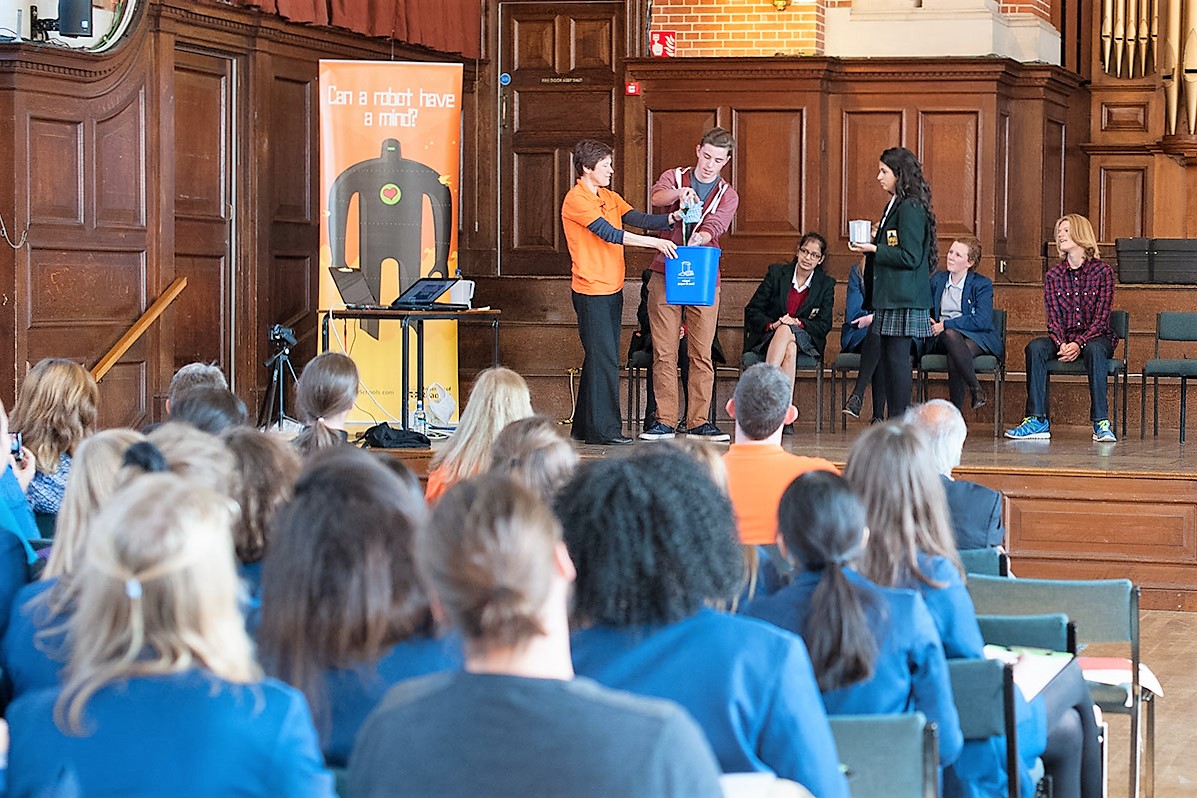
Epistemic insight means ‘knowledge about knowledge’ – and, particularly, knowledge about disciplines and how they interact.
The Epistemic Insight Initiative is developing ways to teach epistemic insight in schools, colleges and teacher education. The launch was filmed by BBC Breakfast
News, Comments and Events

Big Questions Day
On May 16th, Canterbury Christ Church University will welcome 200 students, teachers and guests for a day of asking and exploring Big Questions like can a robot every truly have a sense of curiosity, can genetic engineering make better people and why does the universe...
robot resources
These materials are here to help you to run an in-school workshop on robotics and the Big Question of What it means to be human. robot-workshop-presentation robot-session-plan18-6-17 Neuromorphic engineering info sheet Robot workshop handout
Symposium on Epistemic Insight
Epistemic Insight and Big Questions for Classrooms 27th October 2017. Email LASAR@canterbury.ac.uk to hold your place. This year LASAR's symposium will be convened jointly with Whitelands College at Roehampton University. It will take place at Whitelands College,...
About Our Research
Wising up to how knowledge works
The LASAR (Learning about Science and Religion) research group conducted research to discover how students reason about Big Questions and how Big Questions are managed in schools. The research concluded that schools need to do more to help young people to understand how scholarship and knowledge work not only within their subjects but also across them.
Opportunities for Big Questions
The research discovered that secondary schools typically provide few opportunities for asking Big Questions and for exploring and talking about the distinctive approaches that different diciplines take.
Further, there is a basis to say that the impacts of entrenched compartmentalisation on students’ reasoning are largely hidden – because assessment tends to focus only on students’ progress within each subject.
Meanwhile in primary schools although cross-curricular work is more common, the focus for students is often about learning content knowledge rather than about the structure of the disciplines themselves.
Co-creating research
Canterbury Christ Church University’s research strategy includes creating a university student population who are active researchers in the fields where they aspire to work. It’s an ambition that fits very well with our own vision to develop co-created research projects that are conducted with and by our university tutors, researchers and students.

A Programme of Epistemic Insight

A programme of Epistemic Insight introduces students to scholarly ways of working such as learning about different tools for inquiry.
Teacher Education

Developing Epistemic Insight is centralised in the Teacher Education that takes place in institutions that share strategies, resources and pedagogies.
Epistemic Insight is progressive

Epistemic insight is progressive – it builds up as students move up through school, through college, through university and beyond.
The Epistemic Insight Initiative is a ‘work in progress’ and an active research area that is underway in schools and universities – in England and internationally.
